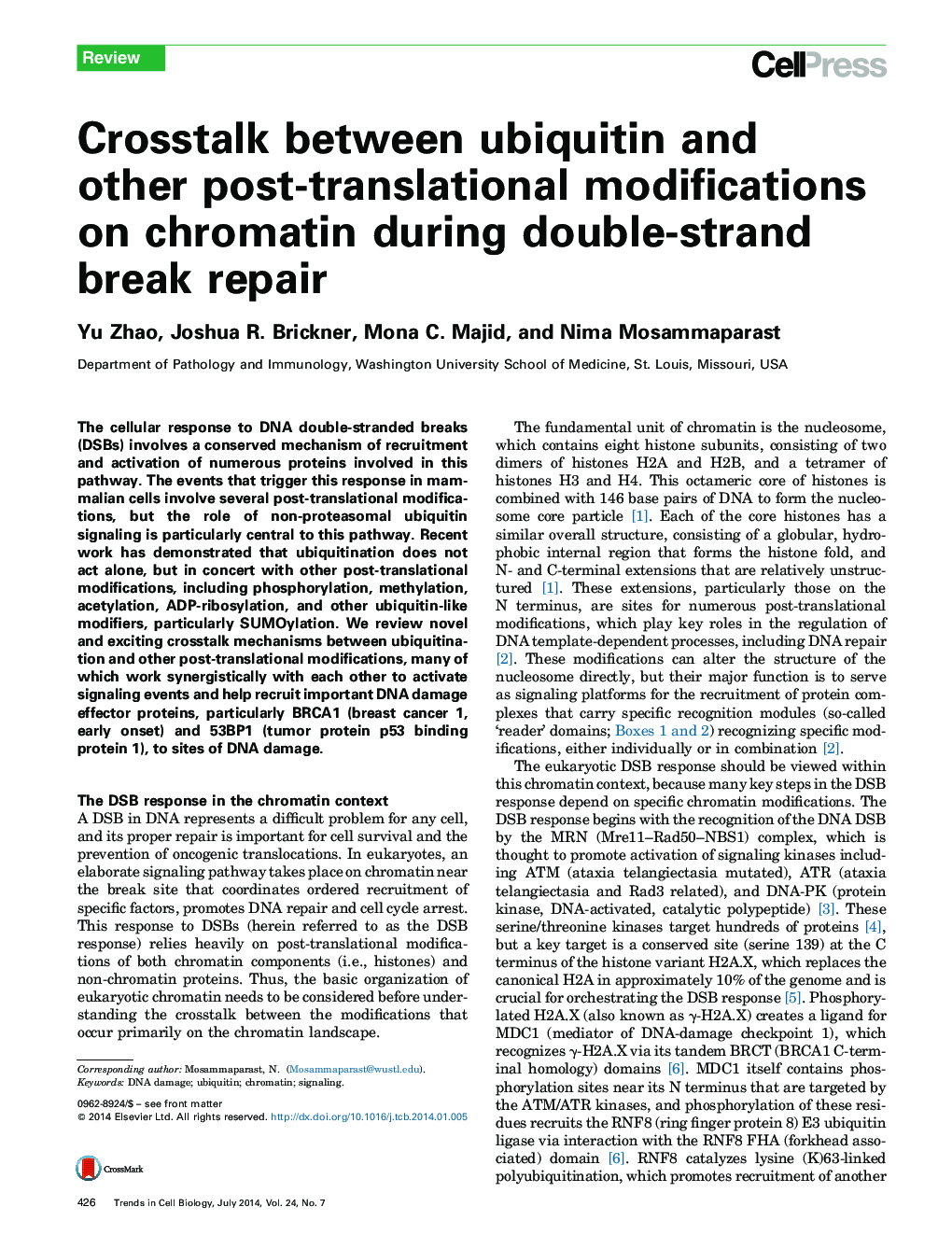| Article ID | Journal | Published Year | Pages | File Type |
|---|---|---|---|---|
| 2204581 | Trends in Cell Biology | 2014 | 9 Pages |
•Ubiquitination is central to DNA double-strand break (DSB) signaling.•Other modifications, such as methylation, crosstalk with ubiquitination on chromatin.•Effector protein recruitment depends on coordination between specific modifications.
The cellular response to DNA double-stranded breaks (DSBs) involves a conserved mechanism of recruitment and activation of numerous proteins involved in this pathway. The events that trigger this response in mammalian cells involve several post-translational modifications, but the role of non-proteasomal ubiquitin signaling is particularly central to this pathway. Recent work has demonstrated that ubiquitination does not act alone, but in concert with other post-translational modifications, including phosphorylation, methylation, acetylation, ADP-ribosylation, and other ubiquitin-like modifiers, particularly SUMOylation. We review novel and exciting crosstalk mechanisms between ubiquitination and other post-translational modifications, many of which work synergistically with each other to activate signaling events and help recruit important DNA damage effector proteins, particularly BRCA1 (breast cancer 1, early onset) and 53BP1 (tumor protein p53 binding protein 1), to sites of DNA damage.
